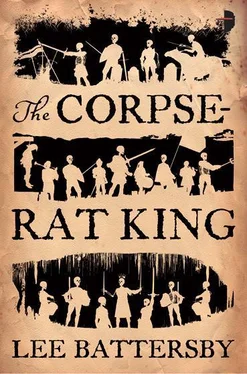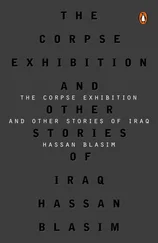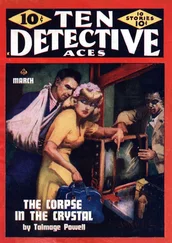LEE BATTERSBY
The Corpse-Rat King
To my beautiful wife Lyn, for her belief, her unwavering support, and her constant love.
To Aiden, with faith that the huge steps he is about take carry him wherever he wishes to go.
And to Erin and Connor, who keep telling me how much they want to be older so they can read this book.
If I catch you using any of the rude words in here, I'll ground you. ONE
The battle was over.
The Jezel valley had been a place of gently rolling farmlands, with a series of short, steep hills at one end where sheep had jostled for grass under the shade of hardy, wind-swept trees. It was a perfect location for two armies to clash. In two hours, the valley had been transformed from a sleepy green nowhere into a madman’s finger painting of mud, metal and ruptured flesh lying beneath a swathe of early morning mist. The lower reaches of the hills lay bare, denuded of handholds by soldiers grabbing at whatever foliage might help them climb above the carnage, only to be dragged back under, fingers curled around snapping branches. Two hours of pre-dawn chaos was over. Now the silence was broken only by the cawing of crows and an occasional cry of disbelief as one of the soldiers left behind to pick through the carpet of corpses saw the face of a friend, or comrade, or brother.
The dead lay across each other like so many stalks of threshed wheat. It was impossible for a man to step in any direction without sliding his foot across someone’s flesh. Men lay embraced in poses at once familiar and obscene, metal-clad parodies of lust turned to stone and forgotten. Loyalties were impossible to discern. Scraps of standards were wrapped around necks or half-buried in the mud that fifty thousand feet had churned to a strength-sapping soup. A careful census might discover who had drowned rather than been beaten into eternity, but no such census would occur. The dead were dead. Those who had decided the need for conflict would move on, to gather more troops and seek further opportunities for warfare. Men can be recruited, but lands are limited.
Not all those on the field were dead, however. Here and there, members of the opposing armies wandered back and forth, bending to turn over a body here, removing a chest plate or shield there. In the aftermath of the battle, the need to identify those lords who had fallen, to ascertain blood payments and send tokens back to estates for identification and enshrinement, had brought down a practical kind of truce. Every now and again, soldiers from opposing sides would pass each other and stop to tell their stories and swap whatever items they had found on their wanderings. To count the fallen was a sad business. With so many thousands of corpses, there were enough deceased gentry that it would take two full days to drag the bodies away from the area. Only after that could the commoners be gathered up like so much kindling and put to the torch.
Minor nobility had been herded toward the far fringes of the battle, in order to blood them in inconsequential clashes. Should they rise in their king’s favour before battles to come, they would have at least some sort of experience in their favour. At the farthest corner, where the ground had become stony and unworkable, ending in a copse of ancient, gnarled trees, two men in the colours of the Kingdom of Scorby tiptoed cautiously through the fallen. A casual observer would see nothing to separate them from the soldiery concentrated on the more profitable slopes towards the centre of the battlefield. They were thin and darkened by the sun. The young one was taller, a little on the burly side, perhaps even barrel-chested. Close-cropped hair sat above an open face framed by ears as large as jug handles. His companion – older, smaller – walked with smooth grace between the corpses, seemingly less troubled by the proximity to death. His hair was longer, brushed back off his sharp features and tied back with a simple leather headband. He was, perhaps, a touch too slight for the military, but the quickness and deftness of his movements marked him out against his lumbering young companion. There was nothing to cause alarm or distrust, no reason to let the gaze linger before moving on.
But watch long enough, and the observer would see how they made pains to avoid their fellow soldiers, how they stooped and scuttled rather than strode with solemn grace, how they shied from any glance and how whatever it was they tore from finger and neck was quickly secreted so that, to all intents and purposes, their task seemed fruitless.
Marius Helles watched his apprentice turn over a corpse and bend to remove the chain gloves from its hands. He tutted. No sense, this boy. It was obvious to Marius, even from several feet away, that the dead man was no noble. Nobody of gentility would grip a smithing hammer so tightly in their cold fist, nor wear a leather jerkin with so many patches. The helmet clinging to the dead man’s head was of poor manufacture, which accounted for the massive dent that had crushed the corpse’s head into such an ovoid shape. Despite all his teachings, the youngster still could not see the obvious and move on to more profitable prospects. Marius hissed, and the young man looked up from his task.
“Not that one, Gerd. There.” He jerked his head towards a splash of burgundy cloth waving above a tangle of bodies. “Check that one out.”
“But this one…” Marius had picked Gerd up whilst on the run from a disastrous money-printing venture in the Tallian foothills. Gerd’s accent bore the thickness of the mountains. Weeks of roadside elocution practice had done nothing to thin his tongue or round his vowels. An accent is a way to be tracked, Marius had told him, over and over, to no avail. He glared, and Gerd, thick as he was, took the hint.
“Stupid boy,” Marius muttered, and picked his way across the dead soldiers towards the possible prize. Best to get there before the boy, in case Gerd mistook a ring for a wart and did him out of a week’s eating. He scanned the corpses to either side as he walked. There, just a few steps away, a flash of chequered cloth that Marius immediately recognised as belonging to the house of the Duke of Lypes, a rich province. He hunched over, close enough to identify the body. One of the Duke’s younger sons, sent to this end of the battle to keep him away from the battle-hardened mercenaries of the Tallian Empire who had borne the brunt of the main fighting. Marius smiled.
“Bet some princess cries when you don’t turn up at her bedchamber tomorrow,” he said to the young man’s staring eyes. He traced the red slash that separated most of the young heir’s jaw from his lower face. His gaze travelled down the boy’s armoured body, hands patting and prodding until they discovered a small bag of coins at the waist. He undid it, and poured several silver coins into his palm.
“Nice,” he said, nodding. Within half a minute, three rings and a gold charm joined them. Marius glanced towards the distant soldiers. When he was sure nobody was looking in his direction he rolled his tongue around, generating as much spit as his mouth could hold. One after the other, he began swallowing his prizes. When the last had been forced down his throat he gasped, then looked to where Gerd was standing over the body to which Marius had directed him.
“Gerd!”
Gerd made no response. He stood above the corpse, eyes wide, his hands raised to his mouth. Marius glanced at the nearest soldiers. No stare met his. He hissed again.
“Gerd! Get down to it, boy.”
Still Gerd did not move. He began to whimper, each inhalation drawing out a slightly louder noise. Marius shook his head in frustration. This was the last straw. A corpse rat who could not stand the sight of the dead was too much of a liability. If Marius managed to survive this, despite the boy’s best attempts to have them caught and strung, he would drop Gerd off at the nearest brothel with a handful of pennies, tell him to enjoy himself, and make for the border on the fastest horse an hour’s straining at the privy could shake loose. He closed the distance between them in three long strides and shook Gerd by his arm.
Читать дальше












